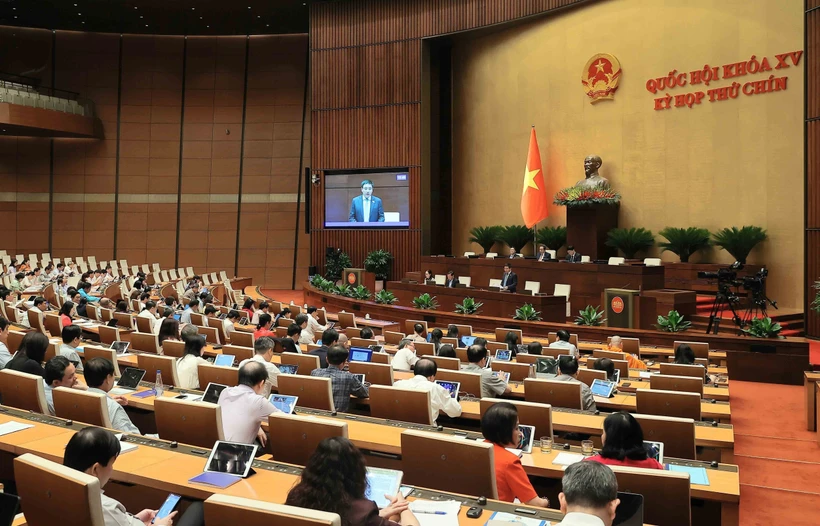
On the morning of May 13, in the Draft Resolution of the National Assembly on extending the period of exemption from agricultural land use tax as stipulated in Resolution No. 55/2010/QH12 of the National Assembly on exemption and reduction of agricultural land use tax, which has been amended and supplemented by a number of articles according to Resolution No. 28/2016/QH14 and Resolution No. 107/2020/QH14, the Government proposed to extend the period of exemption from agricultural land use tax as currently prescribed until December 31, 2030.
Direct financial investment sources for agriculture, farmers and rural areas
According to Minister of Finance Nguyen Van Thang, the summary and evaluation of 20 years of implementing the policy of exemption and reduction of agricultural land use tax shows that the total amount of agricultural land use tax exempted and reduced in the period 2001-2010 was on average about 3,268.5 billion VND/year; in the period 2011-2016, it was on average about 6,308.3 billion VND/year; in the period 2017-2020, it was about 7,438.5 billion VND/year; in the period 2021-2023, it was on average about 7,500 billion VND/year.
The representative of the drafting agency said that in the coming time, it is necessary to continue to exempt agricultural land use tax as currently regulated, in order to continue to encourage organizations and individuals to invest in the agricultural sector, contributing to restructuring the agricultural sector, while continuing to contribute to ensuring national food security and socio-economic stability through promoting land accumulation and concentration to innovate forms of agricultural production organization, developing agriculture towards modernization, concentrated and large-scale specialization.
Along with that, the implementation of agricultural land use tax exemption continues to contribute to improving the competitiveness of agricultural products in the market in the context of international economic integration and trade protectionism trends of countries around the world; ensuring compliance with Vietnam's international commitments and international practices on supporting and encouraging the development of the agricultural sector.
According to Minister Nguyen Van Thang, the assessment of the agricultural land use tax policy after more than 30 years of implementation shows that there are regulations that are no longer suitable for current socio-economic conditions such as outdated tax determination methods, low collected value (tax is calculated in rice, collected in cash) and most of the contents are no longer applied in practice due to the implementation of the policy of exempting agricultural land use tax for the entire area until December 31, 2025.
On the other hand, although the agricultural land use tax policy was issued in 1993, in reality, from 2001 to now, the agricultural land use tax policy has only changed in terms of tax incentives (exemption, reduction) to implement the Party and State's policy in encouraging the development of agriculture, farmers and rural areas. The exemption of agricultural land use tax has not encountered any problems in the past.
Therefore, in order to continue implementing the results achieved from the exemption of agricultural land use tax, in line with the orientation of the Party and State on agriculture, farmers and rural areas; continue to encourage organizations, households and individuals to invest in agriculture and rural areas; contribute to the restructuring of agriculture and rural areas towards industrialization and modernization; ensure compliance with international practices, the Government submits to the National Assembly for promulgation a Resolution of the National Assembly to extend the implementation period of agricultural land use tax exemption as prescribed in Resolution No. 55/2010/QH12, Resolution No. 28/2016/QH14 and Resolution No. 107/2020/QH15 until December 31, 2030.
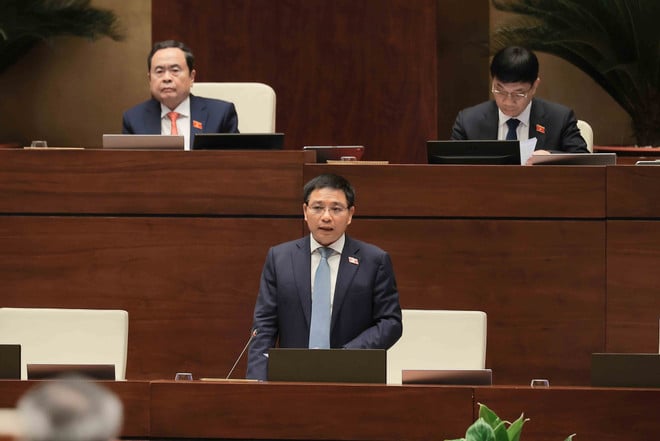
Assessing the impact of the draft Resolution, the representative of the drafting agency emphasized that continuing to exempt agricultural land use tax until the end of 2030 will not reduce revenue because this is a policy being implemented in practice.
With the proposal to extend the exemption period for agricultural land use tax as currently regulated until December 31, 2030, the amount of agricultural land use tax exempted is about 7,500 billion VND/year. This will continue to be a form of direct support to farmers, a source of direct financial investment for the agricultural sector, farmers, and rural areas to invest and expand production scale to improve productivity and product quality...
The drafting agency also emphasized that the continued exemption of agricultural land use tax until the end of 2030 has no significant limitations due to the positive effects on the socio-economic impacts of the implementation of agricultural land use tax exemption under Resolution No. 55/2010/QH12, Resolution No. 28/2016/QH14 and Resolution No. 107/2020/QH14 in the past time, except that the extension of the agricultural land use tax exemption period will not increase the state budget revenue.
Assess the situation to avoid wasting resources
On the side of the auditing agency, Mr. Phan Van Mai, Chairman of the National Assembly's Economic and Financial Committee, said that the agricultural land use tax policy is implemented according to the provisions of the Law on Agricultural Land Use Tax issued since 1993.
Implementing the Party and State's policy of hunger eradication and poverty reduction, while supporting farmers and encouraging the development of agricultural production, from 2001 to present, the National Assembly has issued many Resolutions on exemption and reduction of agricultural land use tax in the direction of expanding the preferential subjects of exemption and reduction in each period.
Accordingly, by December 31, 2025, most households, individuals and organizations directly using land for agricultural production will be exempted from agricultural land use tax, except for the area of agricultural land that the State assigns to organizations for management but does not directly use the land for agricultural production but assigns it to other organizations and individuals for production.
Over the past 30 years since the Law on Agricultural Land Use Tax was promulgated, the policy of exemption and reduction of agricultural land use tax has been implemented for a long time through Resolutions of the National Assembly issued outside the scope of the Law. This reflects the policy of the Party and State in prioritizing support for the development of agriculture, farmers and rural areas over the periods.
The representative of the auditing agency said that economic sectors have also become accustomed to the complete exemption of agricultural land use tax for a long time. Therefore, in order to avoid creating additional costs for agricultural production compared to the current policy being applied, in the current difficult production and business conditions, the majority of opinions in the National Assembly's Economic and Financial Committee agreed on the necessity of extending the agricultural land use tax exemption policy in the coming period as proposed by the Government.
In addition, the majority of opinions in the National Assembly's Economic and Financial Committee basically agreed with the Government's proposal to continue issuing a National Assembly Resolution allowing the extension of the agricultural land use tax exemption period for the next 5 years and submit it to the National Assembly for consideration and decision.
From the perspective of legal document form, there are opinions that the Government's proposal to continue issuing the National Assembly's Resolution to implement this policy is not really appropriate because this is a Resolution that regulates outside the scope of the Law on Agricultural Land Use Tax, which has been implemented in the period 2011-2025 and is now proposed to be extended to 2030. Therefore, the examining agency recommends that the Government accelerate the research and submit to the National Assembly for consideration to amend and supplement the Law on Agricultural Land Use Tax to ensure the sustainability and stability of the legal system.
“There are suggestions that the Government should comprehensively review the implementation of the agricultural land use tax law and submit a revised law at the 10th Session, in which the issue of tax exemption until 2030 will be considered to ensure comprehensiveness and more appropriateness,” said Mr. Phan Van Mai.
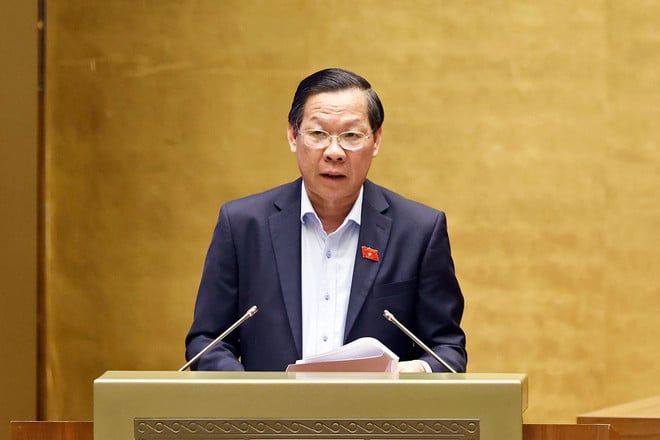
Regarding the content of the draft Resolution, according to Mr. Phan Van Mai, the majority of opinions in the National Assembly's Economic and Financial Committee believe that the draft Resolution does not contain new policy content but only extends the period of exemption from agricultural land use tax.
The implementation of agricultural land use tax exemption is of great significance, demonstrating the Party and State's policies in supporting and encouraging the development of agriculture, farmers and rural areas, and in reality, there are no difficulties or obstacles. Therefore, to ensure the stability of the policy, the Economic and Financial Committee agrees with the content of the draft Resolution as proposed by the Government.
However, many opinions say that the widespread exemption of agricultural land use tax does not create motivation for effective land use, land accumulation for large-scale agricultural production, and the recent exemption of agricultural land use tax has also partly led to the wasteful use of agricultural land, leaving it fallow.
Therefore, the auditing agency proposed to review and evaluate the current status of agricultural land use in order to design a policy of exemption and reduction of agricultural land use tax as a tool to promote effective land use, avoid wasting agricultural land resources, and contribute to implementing Directive No. 27-CT/TW of the Politburo on strengthening the Party's leadership in practicing thrift and combating waste.
According to the Chairman of the National Assembly's Economic and Financial Committee, some opinions said that in the Summary Report, assessing the implementation of agricultural land use tax policy, the Ministry of Finance assessed that after more than 30 years of implementation, the agricultural land use tax policy now has regulations that are no longer suitable for the reality of agricultural production, such as the method of determining tax obligations is still calculated according to kg of rice per hectare of each land area (currently still applied to some subjects not eligible for tax exemption).
There are opinions suggesting that the drafting agency continue to research and carefully evaluate the advantages and disadvantages of extending the implementation period of the agricultural land use tax exemption policy without choosing the solution of building a Law to replace the 1993 Law on Agricultural Land Use Tax, while according to the Ministry of Finance's assessment, "The Law has provisions that are no longer suitable for the socio-economic development situation".
The National Assembly's Economic and Financial Committee agreed with the Government's proposal to submit to the National Assembly for consideration and decision on the National Assembly's Resolution to extend the implementation period of agricultural land use tax exemption as prescribed in Resolution No. 55/2010/QH12, Resolution No. 28/2016/QH14 and Resolution No. 107/2020/QH15 until December 31, 2030.
However, it is recommended that the Government consider not exempting agricultural land use tax for cases of land left fallow or used for purposes other than agricultural purposes, and at the same time, periodically assess the effectiveness of the agricultural land use tax exemption policy from the perspectives of impact on the agricultural economy, farmers' lives and land use efficiency./.
According to VNA
Source: https://baobinhduong.vn/hop-quoc-hoi-de-xuat-tiep-tuc-mien-thue-su-dung-dat-nong-nghiep-den-het-2030-a346892.html


![[Photo] Scientific workshop "Building a socialist model associated with socialist people in Hai Phong city in the period of 2025-2030 and the following years"](https://vphoto.vietnam.vn/thumb/1200x675/vietnam/resource/IMAGE/2025/5/21/5098e06c813243b1bf5670f9dc20ad0a)
![[Photo] Prime Minister Pham Minh Chinh receives Rabbi Yoav Ben Tzur, Israeli Minister of Labor](https://vphoto.vietnam.vn/thumb/1200x675/vietnam/resource/IMAGE/2025/5/21/511bf6664512413ca5a275cbf3fb2f65)

![[Photo] Prime Minister Pham Minh Chinh receives the President of Asia-Pacific region of PowerChina Group](https://vphoto.vietnam.vn/thumb/1200x675/vietnam/resource/IMAGE/2025/5/21/0f4f3c2f997b4fdaa44b60aaac103d91)

![[Photo] Determining the pairs in the team semi-finals of the National Table Tennis Championship of Nhan Dan Newspaper](https://vphoto.vietnam.vn/thumb/1200x675/vietnam/resource/IMAGE/2025/5/21/eacbf7ae6a59497e9ae5da8e63d227bf)


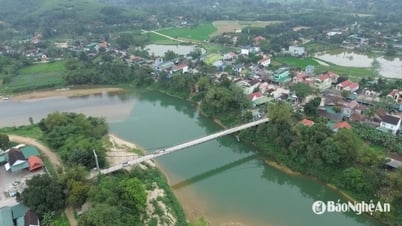



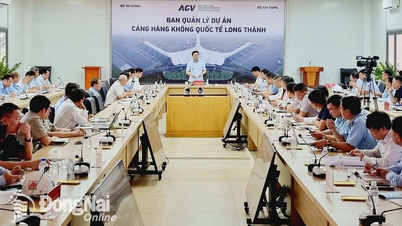



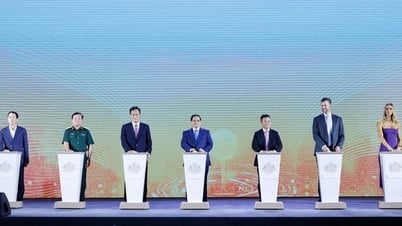





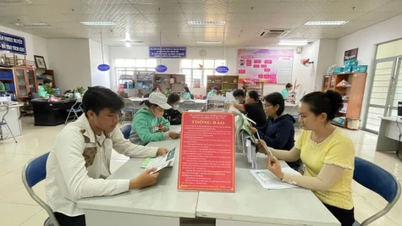

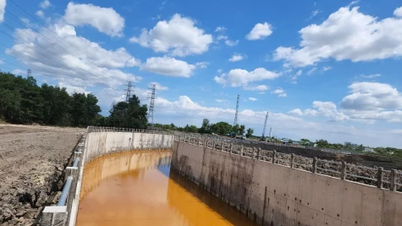
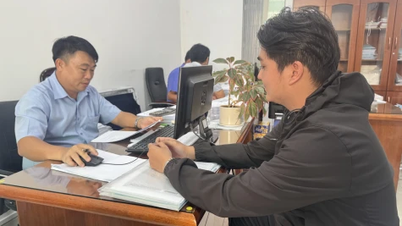






























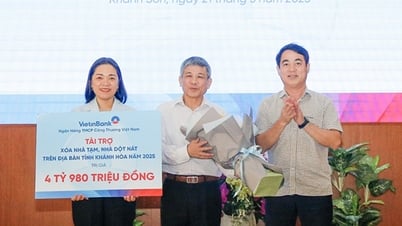




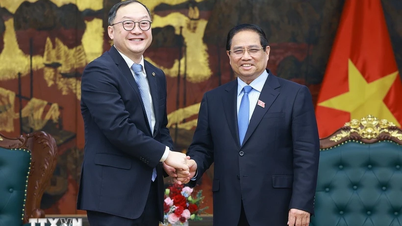












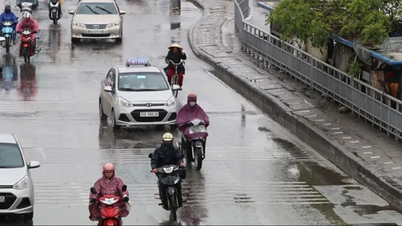

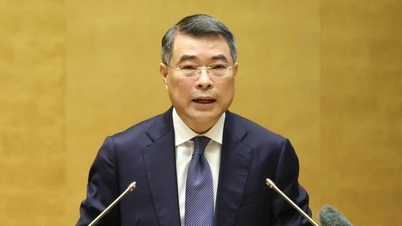
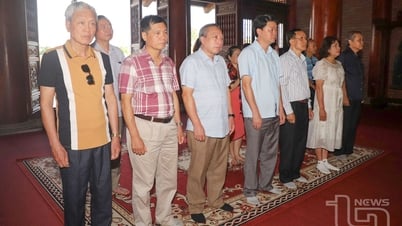








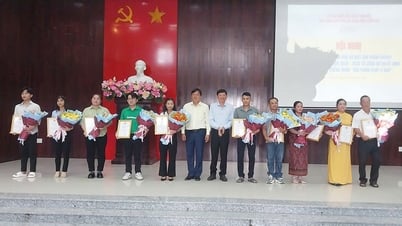

Comment (0)